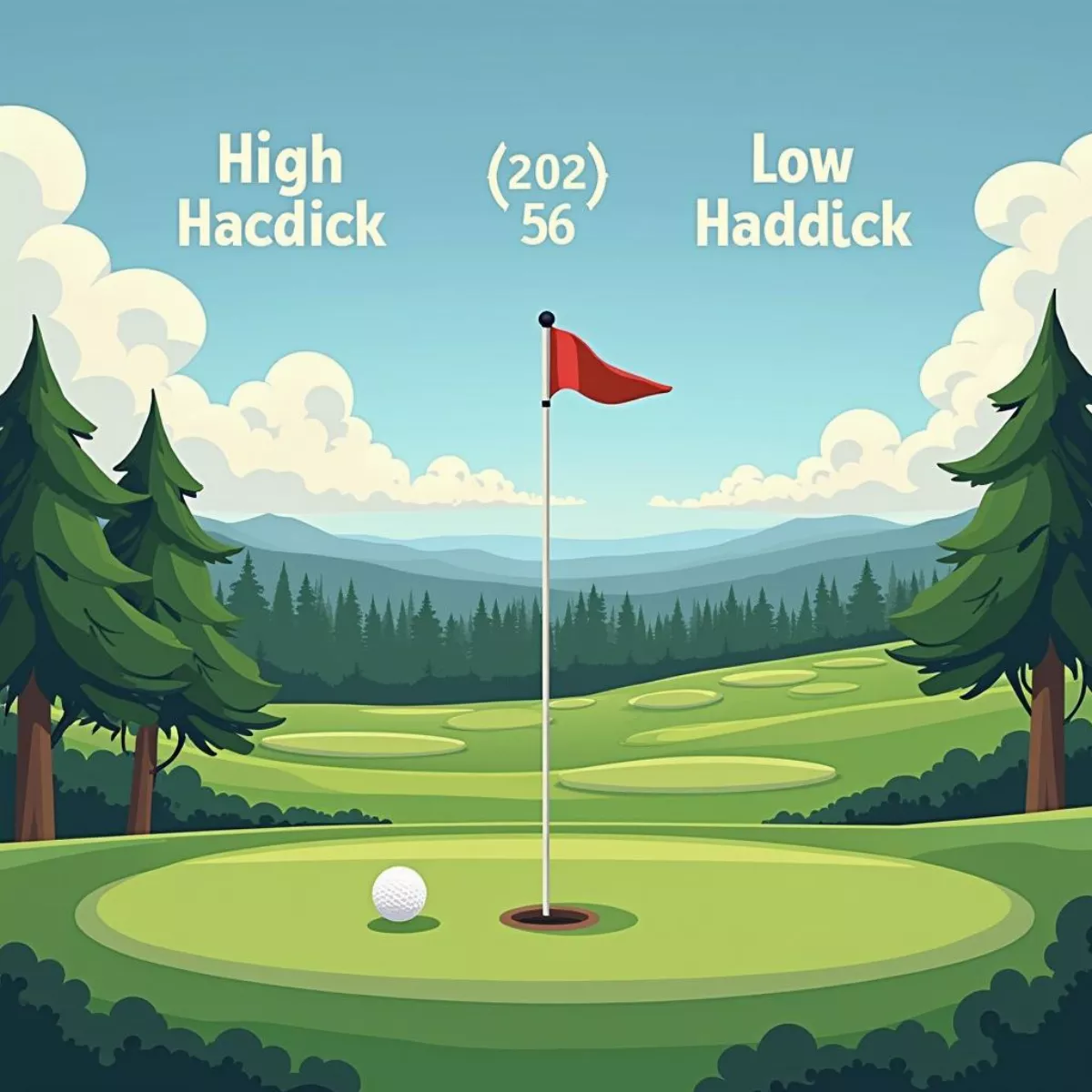Golf is a game of precision, patience, and practice. Whether you’re a beginner just stepping onto the course or a seasoned player looking to improve, understanding the concept of high handicap can elevate your game and enhance your enjoyment. So, what exactly is considered a high handicap in golf, and how does it affect gameplay? Let’s dive in and break it down.
What Is a Handicap in Golf?
In simple terms, a golf handicap is a numerical measurement of a golfer’s potential ability. The lower your handicap, the better your skills. Conversely, a high handicap suggests that the player is less experienced or skilled. Handicaps make it possible for golfers of all levels to compete against each other fairly, which is where the beauty of the game lies.
How is a Golf Handicap Calculated?
Your handicap index is calculated based on the following:
- Score from your round of golf
- Difficulty of the course (Course Rating)
- Slope Rating of the course
- Formula: The basic formula to calculate a golf handicap index is:
- Handicap Index = (Score – Course Rating) x 113 / Slope Rating
Understanding High Handicaps
In the world of golf, a high handicap is typically considered to be a handicap of 20 or higher for men and 24 or higher for women. However, this can vary slightly depending on the golf association and their specific guidelines.
Example:
- A player with a 28 handicap is likely a high handicapper, while a player with a 5 handicap is considered an advanced golfer.
 Golf Course with Handicap Comparison
Golf Course with Handicap Comparison
Characteristics of High Handicappers
High handicappers exhibit several unique traits that define their play style:
- Inconsistent Scores: High handicappers often shoot rounds that vary widely. Expect an average score in the 90s or higher.
- Struggles with Short Game: Many high handicappers may find chipping and putting particularly challenging.
- Learning Curve: They’re often still in the process of learning various aspects of the game, from swing mechanics to course management.
- Course Strategy: High handicappers may not always fully understand course strategies, leading to missed opportunities and strokes.
Importance of the High Handicapper
Understanding what it means to have a high handicap helps shape your approach to the game. It allows players to set manageable goals, use the right equipment, and even choose the right courses.
How to Improve from a High Handicap
Once you recognize yourself as a high handicapper, the journey to improvement begins. Here are several tips to enhance your game:
- Practice Regularly: Aim for consistent practice sessions focusing on your weaknesses.
- Take Lessons: Consider hiring a golf instructor to help refine your technique.
- Play with Better Golfers: Playing with experienced players can provide valuable insights and strategies.
- Focus on Short Game: Improve putting and chipping as they significantly impact your score.
- Use Equipment Suitably: Ensure your clubs suit your skill level—consider forgiving clubs that lend you support.
 Golfer Receiving Instruction from Coach
Golfer Receiving Instruction from Coach
Table: Key Aspects of Golf Handicap Ranges
| Handicap Range | Player Category | Average Score |
|---|---|---|
| 0-5 | Expert | Low 70s to Upper 70s |
| 6-10 | Advanced | Mid 70s to Low 80s |
| 11-20 | Intermediate | Low 80s to Mid 90s |
| 21-30 | High Handicap | Mid 90s to Low 100s |
| 30+ | Beginner | 100+ |
High Handicap Tips for Course Management
For high handicappers, managing your game while on the course can make a world of difference. Here are some tactical tips to consider:
- Know Your Limits: Opt for clubs you are most comfortable with—don’t always go for the driver if you struggle with it.
- Plan Your Shots: Think strategically about your shots and avoid risky plays that could lead to double or triple bogeys.
- Stay Positive: Maintain mental resilience—golf is as much a mental game as it is physical.
- Focus on Recovery: If you make a mistake, don’t dwell on it; aim for a solid recovery shot.
 Golfer Planning Shot on Course
Golfer Planning Shot on Course
The Social Aspect of Being a High Handicapper
Being a high handicapper shouldn’t discourage you; in fact, it can be a wonderful entry point into the golf community. Here’s how you can embrace the social aspect of the game:
- Join a League: Many leagues welcome players of all skill levels, providing a great opportunity to learn and make new friends.
- Attend Golf Clinics: Workshops and clinics tailored for beginners can help you develop your skills while meeting others.
- Engage in Friendly Competitions: Look for local tournaments that specifically accommodate high handicappers.
Key Takeaways
- A high handicap typically refers to a handicap of 20 or higher for men and 24 or higher for women.
- Regular practice, lessons, and playing with experienced golfers can aid improvement.
- Course management, knowing your limits, and maintaining a positive mindset are crucial for performance.
- Engaging in the social aspects of golf can enhance your experience despite being a high handicapper.
FAQ about High Handicaps in Golf
- What is the highest golf handicap?
- The highest official handicap is 54 for both men and women.
- Can I still play competitive golf with a high handicap?
- Absolutely! Many tournaments have categories for different handicaps, making it possible for everyone to compete.
- How often should I practice if I have a high handicap?
- Aim for at least 2-3 practice sessions per week focusing on various aspects of your game.
- Is it okay to play with a higher handicap?
- Yes, golf is about enjoyment and improvement, so playing at your level and having fun is the goal!
- Do high handicappers need special equipment?
- While it’s not necessary, using more forgiving clubs can help improve your game.
- How can I find a golf instructor?
- Check local golf courses, private clubs, or websites like the PGA to find certified instructors in your area.
- What are some common mistakes high handicappers make?
- Common mistakes include poor course management, selecting the wrong club, and getting frustrated too quickly.
- Can I lower my handicap quickly?
- Lowering your handicap takes time and consistent practice, but focusing on your short game can often yield significant improvement.
- Should I join a golf league as a high handicapper?
- Joining a league can provide you with valuable experience, camaraderie, and a chance to improve.
- What’s a good goal for a high handicapper?
- Aim to reduce your scores gradually; setting obtainable goals, like breaking 100 consistently, can be a great starting point.
 Group of Golfers Enjoying Game
Group of Golfers Enjoying Game
In conclusion, everybody starts somewhere in golf. Embrace your high handicap and focus on the journey ahead. Enjoy the process of learning, competing, and connecting with fellow golf enthusiasts. Happy golfing!